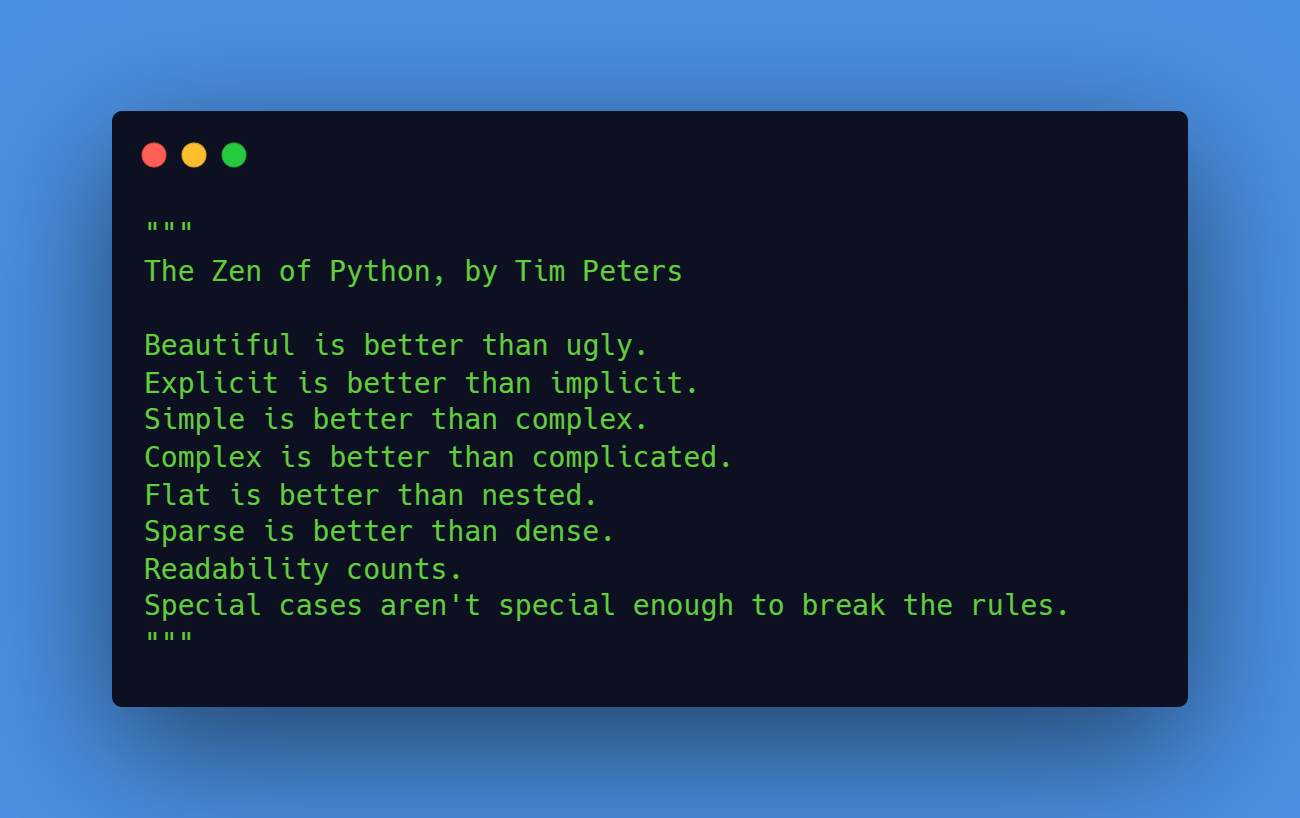To import a module from a parent directory in Python, you can use the sys.path.append function to add the directory to the Python path, and then use the import statement to import the module.
For example, suppose you have the following directory structure:
Code language: plaintext (plaintext)project/ __init__.py calc.py child/ __init__.py script.py
And you want to import the calc module from the project directory in the project/child/script.py file.
You can do this by adding the parent directory, using ../, to the Python path and then importing the project.calc module:
import sys
sys.path.append("../")
import project.calc
Code language: Python (python)Alternatively, you can use the PYTHONPATH environment variable to specify directories that should be added to the Python path. For example:
export PYTHONPATH="/path/to/project:$PYTHONPATH"
Code language: Bash (bash)Then you can import the calc module in the script.py file as follows:
import project.calc
Code language: Python (python)Note on Relative Imports
The answer above assumes you are calling the script directly like this:
python3 child/script.py
Instead, if your Python script is part of a package and you are wanting to use a module in a parent folder then you can simply use a relative import like this:
import ..calcCode language: JavaScript (javascript)However, if you do this without using packages then you will receive this error:
ImportError: attempted relative import with no known parent packageCode language: JavaScript (javascript)If you want to package your code so that you can use relative imports and avoid modifying the path then you can follow the Packaging Python Projects guide.
References
- Python documentation on
sys.path: https://docs.python.org/3/library/sys.html#sys.path - Python documentation on the
importstatement: https://docs.python.org/3/reference/simple_stmts.html#import - Python documentation on relative imports: https://docs.python.org/3/tutorial/modules.html#intra-package-references
- Packaging Python Projects guide: https://packaging.python.org/tutorials/packaging-projects/

Leave a Reply